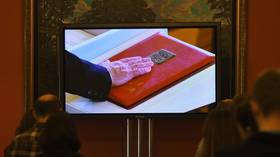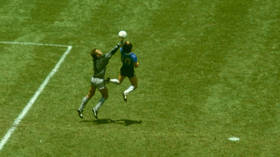Council of Europe report on Russian constitutional change slams ‘disproportionate’ strengthening of President Putin’s position

The amendments made to Russia’s constitution go “beyond what is appropriate” and seriously affect the balance of power. That’s according to the Venice Commission of the Council of Europe, which published a report on Tuesday.
In particular, the commission noted that the amendments had “disproportionately strengthened the position (of the President)” and had “done away with some of the checks and balances originally foreseen in the Constitution.”
The commission criticized the move to nullify current leader Vladimir Putin’s already-served terms, meaning he can possibly run for two more terms in the Kremlin.
Also on rt.com Never gonna give you up: Kremlin says Russian regions have no right to independence votes, as constitution bans breakup of country“The President has acquired additional powers at the expense of the Chairman of the Government,” the report said, also noting an increase in the number of Senators appointed by the head of state.
Last summer, 78% of Russians voted in favor of sweeping changes to the country’s fundamental law. The new amendments include the reshuffling of power between state organs and the enshrining of marriage as between a man and a woman.
According to the commission, it is not only the content of the amendments which are considered to be problematic but also the process of adoption, which was said to be too hasty, without giving citizens a fair chance to be involved in the process.
The constitutional changes were originally presented by Putin as a way to modernize away from the hyper-presidential system developed by the country’s first president, Boris Yeltsin. In the early 1990s, with Western support and primarily to keep the Communists at bay, Yeltsin introduced a type of government that consolidated power in the Kremlin. Afterwards, US President Bill Clinton compared Yeltsin to Abraham Lincoln.
In response to the commission’s report, Senator Andrey Klishas said that some of the findings are erroneous.
“Certain conclusions of the commission are simply wrong and do not take into account the development of Russia's legal institutions over the past 30 years," Klishas said.
The report wasn’t entirely critical, however. In particular, the Commission noted “increased protection of social rights” and “introduction of a fixed six-year term for most of the Senators of the Federation Council.”
Last year, the Russian Foreign Ministry reported that Moscow had not been in contact with the Venice Commission to ask for their assessment on constitutional amendments, believing that it is an internal matter.
Think your friends would be interested? Share this story!














